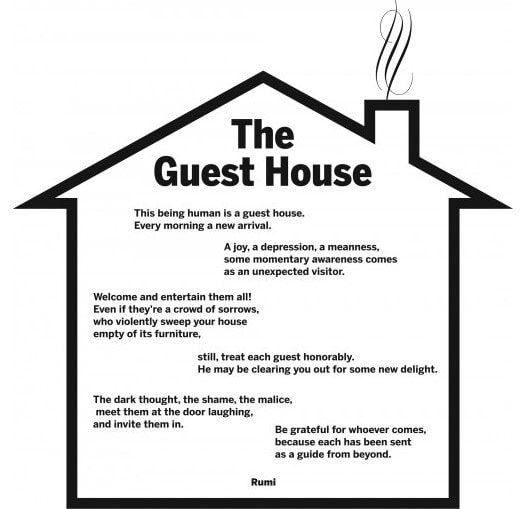
For the longest time, I thought that the personal aspect that stood most in the way of my awakening was the mind. I hated my mind for being so incessantly noisy. All I wanted was for it to shut up. Which it did only very rarely, in exquisite moments of bliss or emptiness during retreats or meditation. It calmed down over time, for sure, but it never really stopped. Even when I was inquiring into who I was, the mind wasn’t always empty, even if I had an increasingly solid and unquestionable sense of who I am. (If you are more of an emotional type you can substitute emotions for the mind).
We all have ideas of what awakening means. None of them are true,
Ultimately, it is the stress, unease, and suffering in our lives that we hope to solve through awakening. This is what mostly pushes our search. Even if you think you just love the exquisite beauty of Truth or Love or God, the reason why you love that so much is because during the moments when you’re in the appreciation of that beauty, suffering – tension, agitation, pain and contraction -- has stopped. It’s always the ‘negative’ and the dark, the suffering, that pushes our search. The problem is: from that arise projections about what awakening is, namely an absence of these painful aspects of our lives.
In trying to get away from the suffering, we end up looking for something that doesn’t exist. Permanent ease, beauty and peace are not what human nature is made to be. This human nature moves eternally between opposites of ease and contraction, peace and struggle, beauty and ugliness, well-being and pain. This is what, in the yogic tradition, is called the play of leela. In Rumi’s poem The Guesthouse (see below), it is the coming and going of all sorts of agreeable and disagreeable visitors.
Trying to get away from, or to get rid of, the disagreeable visitors is setting yourself up to fail. It’s like imagining that you can move to a house where only agreeable, enlightened visitors knock at the door. This neighborhood does not exist in the human realm. Or it's like imagining that you can shut the door permanently to the ones you don’t like. Instead, if you learn how to welcome and entertain them, to accept their visit and appreciate what they bring, humbly and with a willingness to be taught, or even joyfully in your willingness to be emptied out – then you come to realize that you are the house, the space in which all of this happens.
This space does not need to close the door to anything or anybody. And it will be kind and compassionate to the visitors that are ugly and distorted by pain and suffering. Yet there will also be a clarity that these visitors are just visitors. They’re not who you are. When you try to shut the door or throw them out if they managed to sneak in, you’re locked in a struggle that keeps you away from the very ease and peace you’re looking for. When you throw open the doors and let Life bring you what it will, including your own reactions, then you’re much closer to Life, to Love, to Being as it plays out in every moment.
And this, too, is just an image and ultimately false. But it’s closer to Truth than those that come from projections based on opposites of experience, on our yearning for a life free from pain and suffering.
If you know the painfulness of the struggle with the ‘negative’ visitors, and if you’re ready to try opening the doors instead, you may find help in a psycho-spiritual form of therapy, or in the spiritual support groups or the sangha gatherings that I’m offering online. Opening the doors takes you on a challenging but rewarding journey navigating between the hard rocks of suffering and the arid dryness of awakeness without love. It’s a voyage into the wondrous aliveness of the human Heart.


 RSS Feed
RSS Feed